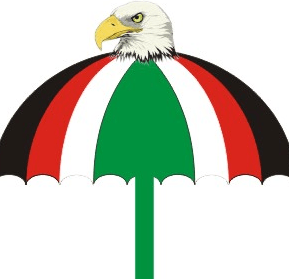NDC to re-introduce incremental credit for teachers
 The next government of the National Democratic Congress (NDC) 2017-2021 under President John Dramani Mahama will re-introduce incremental credit for Science, Mathematics, Technical and Vocational Teachers.
The next government of the National Democratic Congress (NDC) 2017-2021 under President John Dramani Mahama will re-introduce incremental credit for Science, Mathematics, Technical and Vocational Teachers.
The NDC in its 2016 manifesto said it will continue the expansion of the Untrained Teachers Diploma in Basic Education (UTDBE) Programme to further reduce the number of untrained teachers in the Science and Mathematics education sector.
The analysis of the NDC manifesto is part of the Ghana News Agency project “GNA Tracks Elections 2016,” which seeks to educate the electorate on the various issues raised by political parties and other stakeholders.
The GNA Tracks Elections 2016 project also seeks to ensure gender and social inclusion in national politics and also provide voice for the youth, vulnerable groups, opinion leaders and the broader spectrum of the society to contribute to peaceful elections.
“We will continue to strengthen the teaching and learning of Mathematics and Science and provide special support to motivate teachers and pupils; and enhance the Mathematics, Science and Technology Scholarship Scheme (MASTESS) to support needy students to opt for mathematics and science based programmes at both secondary and tertiary levels.
“We will continue to upgrade equipment for the teaching and learning of Science, Technical and Vocational subjects; continue to provide consumables for effective and efficient use of the Science Resource Centres; and introduce new strategies for attaining the national objective of 60:40 admission ratio in tertiary institutions in favour of the Sciences”.
The NDC said it will establish a unit under the National Council for Tertiary Education (NCTE) to coordinate interventions for linking tertiary education to industry; continue to promote collaborative programmes between industry and tertiary institutions to increase opportunities for practical training and internship.
Incentives will be provided to industries and businesses that provide more room for internships; continue to review curriculum development of tertiary institutions to meet the skills and human capital needs of industry; and support the Ghana Statistical Service to resume the production and publication of the monthly Labour Market Statistics to inform programme choices and accreditation at the tertiary level.
The NDC said it will continue to make entrepreneurship training a key component of the education system.
The NDC said the Government has initiated bills that are designed to respond to the changing dynamics in the education sector, book development, adult education, tertiary education and technical and vocational education.
The following bills are being processed for enactment:
Chartered Institute of Bankers Bill; Education Bill; Library Services Bill; Ghana Book Development Agency Bill; Non-Formal Education Agency Bill; Tertiary Education Research Fund Bill; National Commission for Tertiary Education Bill; and National Accreditation and Qualifications Agency Bill.
Basic Education (comprising Early Childhood Care and Development, Primary and Junior High Schools); Secondary Education (comprising Senior High Schools, Vocational and Technical Schools) and Tertiary Education (comprising Universities, Polytechnics, Specialized institutions and Colleges of Education) as dictated by the 1992 Constitution of the Republic of Ghana.
The NDC said it would continue to engage private tertiary institutions to focus training on the human resource requirements of the nation; amend the GETFUND Act to extend support to private tertiary institutions engaged in science and engineering training.
Source: GNA
